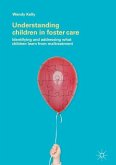Youth growing up in child welfare programs in the U.S. encounter enormous obstacles that drastically limit their prospects for the future. Lacking parental care and having to rely on professionals for guidance, many children do not feel supported and mistrust residential programs and their staff, developing oppositional attitudes, violating rules, and neglecting academic tasks. Increasingly, such difficulties have been framed as mental health issues (i.e., psychological disorders), diverting attention from how oppressive institutional practices contribute to those difficulties. This book describes a transformative research project led by a developmental psychologist in a residential program based on cultural-historical activity theory and critical pedagogy. The work centered on collaborative learning activities that gradually transformed institutional practices as learning emerged as the leading activity for the boys in the program. Revealing how a developmental approach can bring about change in institutional practices, this book will interest educators, developmental psychologists, child welfare professionals and anybody concerned with the plight of foster children.
Bitte wählen Sie Ihr Anliegen aus.
Rechnungen
Retourenschein anfordern
Bestellstatus
Storno








